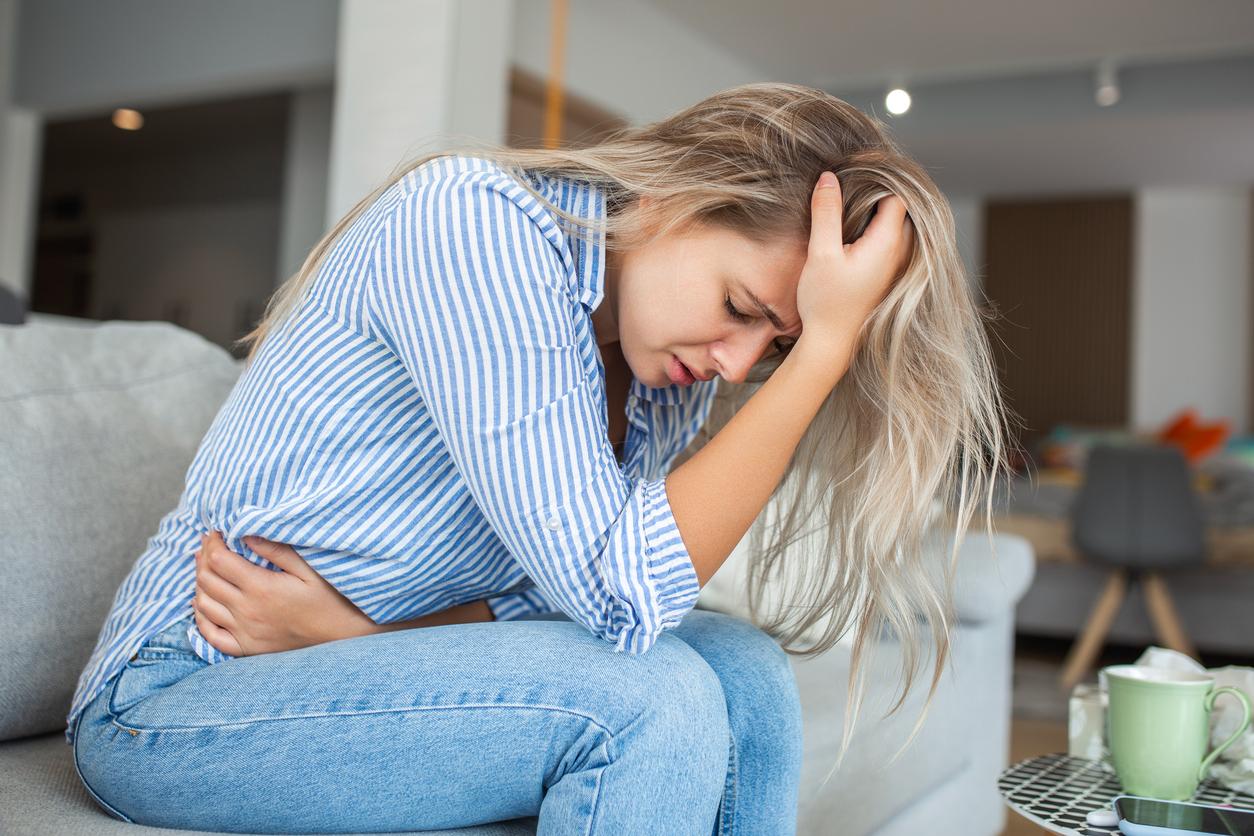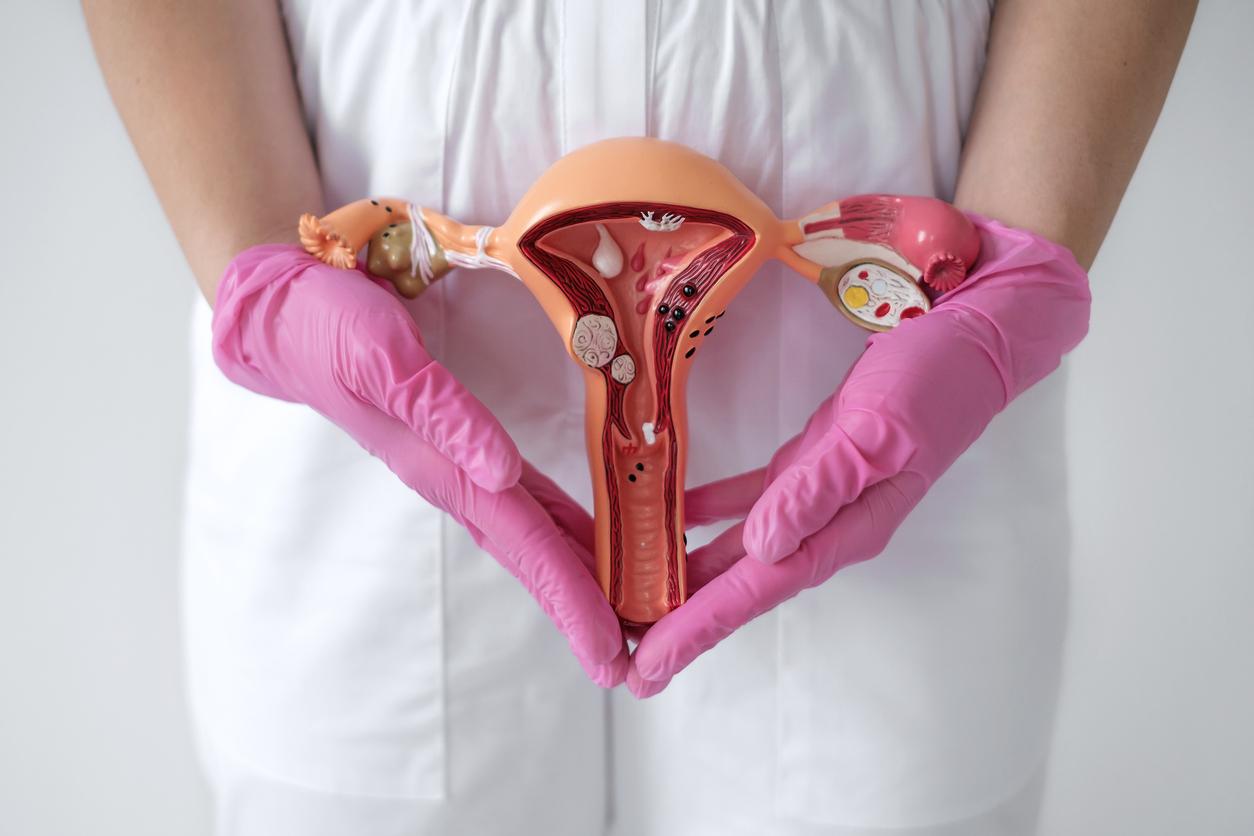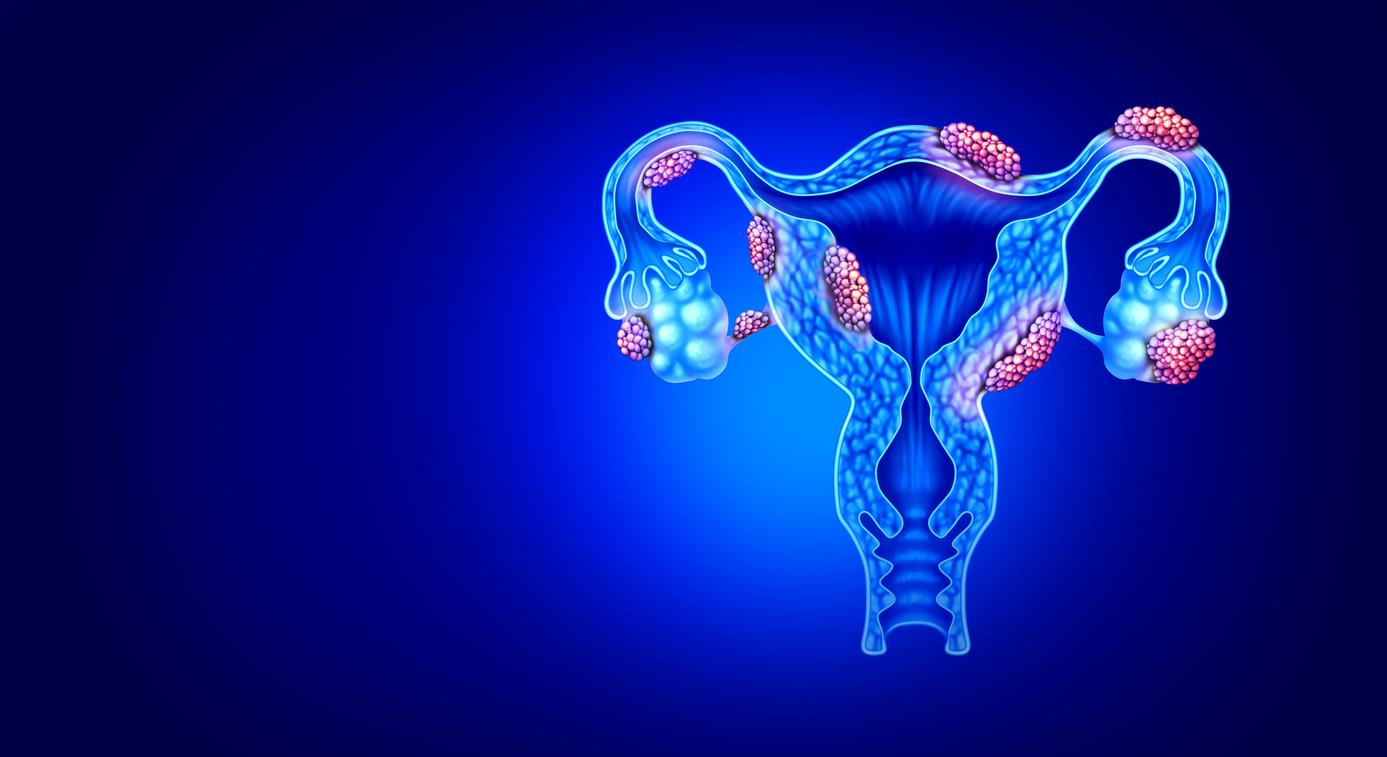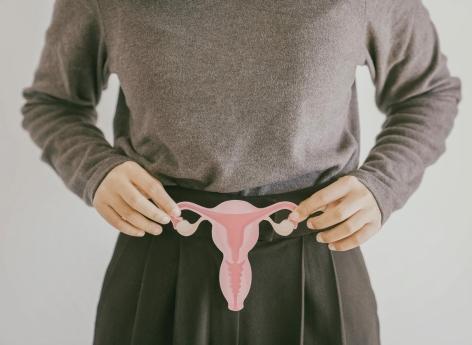Endometriosis, puberty, premenopause, uterine fibroids… The list of reasons that can explain irregular menstrual cycles is long. Why Doctor explains to you the ten most frequent.

- Pain during menstruation is called “dysmenorrhea”.
- 50 to 70% of teenagers have painful periods permanently or occasionally.
“The menstrual cycle is a cyclical activity of the endocrine function of the ovary which is manifested by the flow of blood for two to six days, occurring repeatedly every 28 days”. That’s what your biology teacher told you in college. However, you must have already noticed that your periods sometimes vary, coming early, late, too heavy or strangely weak. Many reasons can cause this phenomenon, from excessive physical activity to a thyroid problem, through endometriosis or lack of sleep. Why Doctor listed the ten most common.
-
Puberty
For a young girl having her first period, nothing is more normal than an irregular cycle. With significant fluctuations in hormone levels during puberty, teenage girls tend to have longer or shorter menstrual cycles. A young girl’s menstrual cycle can even take six years to reach its normal rhythm.
-
Excessive physical activity
No, it’s not a myth. Very physical and intense activity combined with low body fat can stress the body so much that it sends a signal to the brain telling it to stop producing fertility hormones. In fact, according to him, you don’t have everything you need to feed a baby. Don’t worry though, because once you’ve calmed down a bit, everything should be back to normal. If, despite everything, you still don’t have a period, talk to your gynecologist: you may have a period. amenorrhea (absence of full-term periods).
-
sleep disorders
When you disrupt your internal clock, of course, it affects reproductive hormones, which can upset ovulation and menstruation. Chaotic nighttime sleep can also affect melatonin, a hormone that plays a role in reproduction. Consequently, if your rhythm of life is offbeat, remember to draw the curtains in your bedroom so as not to disturb your biological clock too much by letting in light. The same phenomenon can affect frequent travelers. Because jet-lag can sometimes trigger the cessation of menstruation. See your doctor if this happens.
-
Overweight
When a woman is overweight, she produces too much estrogen, which often results in irregular, heavy and very long periods (more than a week). More serious, it runs a risk of endometriosis, and even cancer of the endometrium, the mucous membrane that lines the wall of the uterus. If you are in this situation, consult your doctor, who may recommend an oral contraceptive, in order to thin the endometrium and reduce the risk of cancer.
-
hormone treatment
Medications for thyroid disorders, steroids, or antipsychotics, which release dopamine, can disrupt hormone receptors, which can affect the cycle. If you are often a week late or early, discuss this with your gynecologist, who will probably advise you to modify your treatment with the agreement of the specialist concerned.
-
Premenopause
In the years leading up to menopause, a woman’s hormones begin to change. This period can last up to ten years. During this time, you may have irregular menstrual cycles: longer, shorter, no periods at all, or lighter bleeding. Hot flashes are of course a very common symptom. But if you don’t get your period for a full year, then you’ve reached menopause.
-
Endometriosis
When a woman has endometriosis, tissue similar to uterine tissue develops elsewhere in the body. This disease is the cause of abdominal pain and cramps, pain during sexual intercourse, and irregular bleeding. Sometimes these are so large that the patient feels like she is starting a second cycle. If you are concerned, consult a gynecologist who will prescribe a pelvic MRI or a laparoscopy (medical examination which consists of observing the interior of the abdominal cavity, the uterus, the ovaries and the fallopian tubes) to make a diagnosis. If you suffer from endometriosis, your gynecologist will prescribe an appropriate pill or surgery, depending on the severity of the disease.
-
Micropolycystic ovaries
Excessively spaced periods (between 6 weeks and 2 and a half months between cycles), as well as excessive hairiness and acne, are the symptoms of micropolycystic ovaries, an endocrine pathology that strikes more and more often, due to increased exposure to endocrine disruptors. The gynecologist generally prescribes an endovaginal ultrasound (where a probe is introduced into the vagina) to be performed between days 3 and 5 of the cycle, if the cycles are regular, and without taking the pill. If you have been diagnosed with micropolycystic ovaries, your doctor may recommend that you lose weight if necessary, give you a specific dose of pills, or, if the cysts are really large, prescribe surgery to remove them.
-
Thyroid problems
The thyroid is a regulator of hormones in the body. In fact, when she’s been acting up, it obviously has an impact on your period. Irregular menstrual cycles can be caused by hypothyroidism or hyperthyroidism. If you are constantly cold, suffer from constipation, constant fatigue, heavy periods, pale skin, swollen face, slow heartbeat, and unusual weight gain in a short period of time, you may be suffering from – be hypothyroid. Conversely, people with hyperthyroidism tend to feel very irritable, experience unexplained weight loss, constant heat, puffy eyes, diarrhea, insomnia, or rapid heartbeat. If you suspect a thyroid problem, consult an endocrinologist who will prescribe an appropriate treatment.
-
Uterine fibroids
They are benign tumors that develop on the uterine wall, due to a genetic predisposition or a hormonal upheaval. They can be the cause of bleeding and very heavy and close menstrual flows. If you have uterine fibroids, you may feel pressure in the pelvis, with constant urination, lower back pain and pain during intercourse. If you have these symptoms, see your doctor for a pelvic ultrasound or MRI. If the fibroid is really very large, surgery may be necessary.
In summary, in general, if you find that your cycles are irregular, that you bleed profusely or that you experience pelvic pain, consult without delay. In addition to the diseases listed above, too frequent and too heavy periods tend to lead to dangerous anemia over time. Conversely, lack of ovulation can lead to fertility problems.













